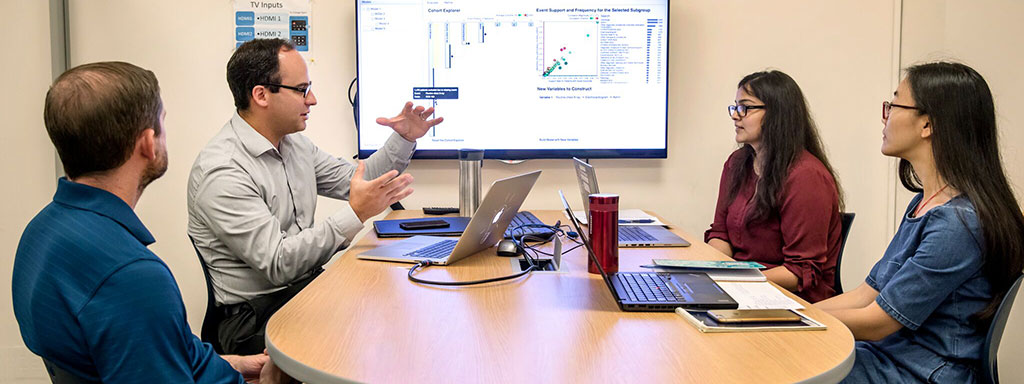M.S. in Information Science
Overview
The M.S. in Information Science (MSIS) program at the UNC School of Information and Library Science (SILS) prepares students to become leaders in the design, implementation, evaluation, and administration of information systems. The program guides students toward expertise in analyzing, organizing, representing, and retrieving information, with an emphasis on developing information systems and processes to meet the information needs of the future.
This on-campus program allows students to form close relationships with peers and professors. Connect with members of our passionate alumni community in a wide range of industries and professions.
If you have questions regarding the MSIS program, please feel free to reach out to us at info@ils.unc.edu.
The M.S. in Information Science is designated as a STEM program, which allows eligible international graduates to apply for a 24-month OPT extension.
Customize Your Experience
Our highly flexible program allows students to customize their learning experience through options such as:
- A concentration in archives and records management
- An informal specialization or certificate
- A capstone experience consisting of either a research-based paper or a practicum project
Gain Hands-On Experience in the Field
The SILS Field Experience Program enables students to gain 135 hours of professional experience in an information organization while receiving three hours of class credit. Field Experience can be completed during the fall, spring, or summer term. Students are mentored by both a supervising professional in the organization (site supervisor) and a full-time SILS faculty member (faculty supervisor). Students also engage in a course seminar.
Careers in Information Science
Graduates of the MSIS program find exciting careers in a variety of settings: businesses and corporations (including the health-care and financial industries), non-profit organizations, government agencies, academic institutions, and entrepreneurial enterprises.
Within these settings, they may focus on systems analysis and design, database administration, information retrieval and data mining, knowledge management systems, web design, instructional technologies, social media, user interface design, user experience, and emerging technologies.
Upon graduation, our students have accepted positions such as:
- Software Development Engineer, Amazon
- Computer Network Defense Deputy Team Chief, Army National Guard
- Data and Policy Analyst, Acumen LLC
- User Experience Designer, SAS
- Analyst, Credit Suisse
- Metadata Librarian, University of Tennessee
- Machine Learning Lead, Semantic Enrichment Team, EBSCO Information Services
Application Information
For complete details on application deadlines, tuition, financial aid, and the application process, visit our master’s degree information page.
Meet the Faculty
Associate Professor Rob Capra talks about his research and teaching. Watch more faculty lighting talks on our YouTube channel.
 Questions?
Questions?
Contact Lara Bailey
Graduate Programs Assistant Director
ljbailey@email.unc.edu or 919-962-7601





